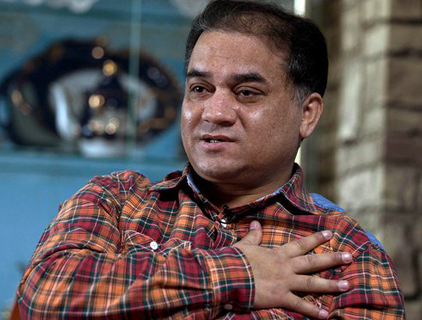
Ilham Tohti was convicted of separatism and condemned to a life behind bars by a court in Xinjiang in 2014
Photo:theguardian
The Martin Ennals Foundation annual human rights award has been awarded to the Uyghur scholar and activist Ilham Tohti. Despite international recognition for his work to bring peace to Xinjing, the Uyghur region of north western China, he receives the award behind bars. Arrested in 2014 by the Chinese government, Tohti was sentenced to life in prison.
While taking pains not to promote separatism, Ilham has been a vocal advocate for the economic, cultural, and religious rights of Uyghurs in Xinjiang his entire working life. Ilham Tohti began writing about political and ethnic tensions in his native Xinjiang in the mid-90s and launched a bilingual blog in 2006 to serve as an open platform for debate and discussion.
Upon his nomination as a finalist for the Martin Ennals award, his daughter reflected: “My father Ilham Tohti has used only one weapon in his struggle for the basic rights of the Uyghurs of Xinjiang: words. This is all he has ever had at his disposal, and all that he has ever needed. And this is what China found so threatening.”
The Chinese government began carefully following his work after he wrote on the deadly 2009 ethnic riots in Xinjiang’s capital. After a spate of attacks linked to the region in 2014, Beijing declared a “people’s war on terror” and began using accounts of ordinary citizens to prosecute and arrest anyone accused of being a terrorist.
The police arrested Tohti at Beijing Airport in 2013 when he was leaving China to begin a post as a visiting scholar at Indiana University in America. After a two-day trial in 2014 surrounding accusations of inciting ethnic hate and supporting separatism, he was sentenced to life in prison.
Despite his two decades of working to mediate ethnic tensions in Xinjiang, the Chinese government insists Tohti is a dangerous criminal. After the award was announced Geng Shuang, a Chinese foreign ministry spokesperson, told the Guardian that “His case has nothing to do with human rights.”
The decision to honour Ilham Tohti is expected to anger the Chinese government. In 2014 the Martin Ennals foundation honoured Cao Shunli, a Chinese lawyer and human rights activist, days before she died in police custody, drawing international attention to the Chinese government’s human rights abuses.
Xinjiang, or East Turkestan, is an autonomous territory in northwest China, a vast region of deserts and mountains. It is home to many ethnic minority groups, including the Muslim Turkic Uyghur people. It is a restive region whose people, like the Tibetans, protest against the human rights abuses they are subject to under Chinese rule but, unlike the Tibetans their protests can turn to violence. Uyghurs and Tibetans liaise over the human rights issues their two countries have in common.
The Martin Ennals Award is an annual prize for human rights defenders. Finalists and the laureate are selected by a jury of ten of the world’s leading human rights non-government organisations (NGOs). The Martin EnnalsFoundation, which is based in Switzerland, provides protection and support to human rights defenders who are at risk.




 Print
Print Email
Email